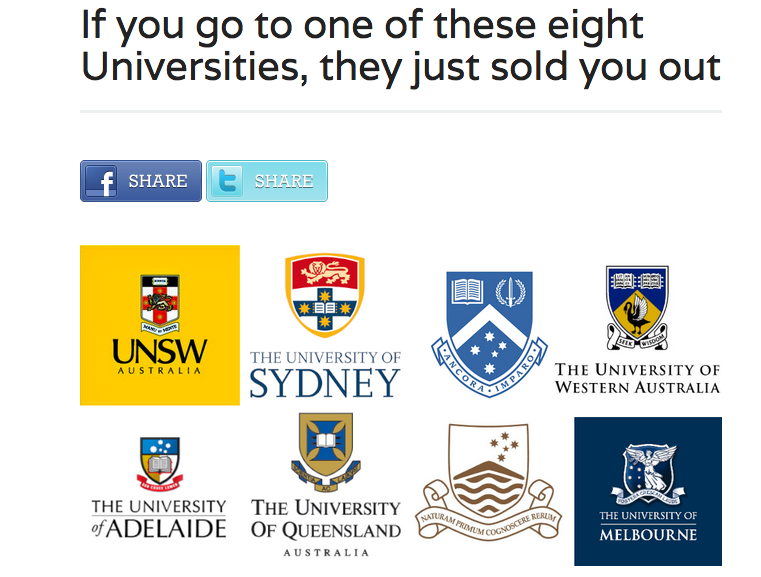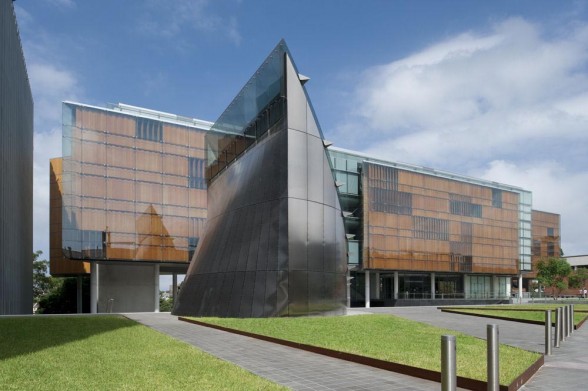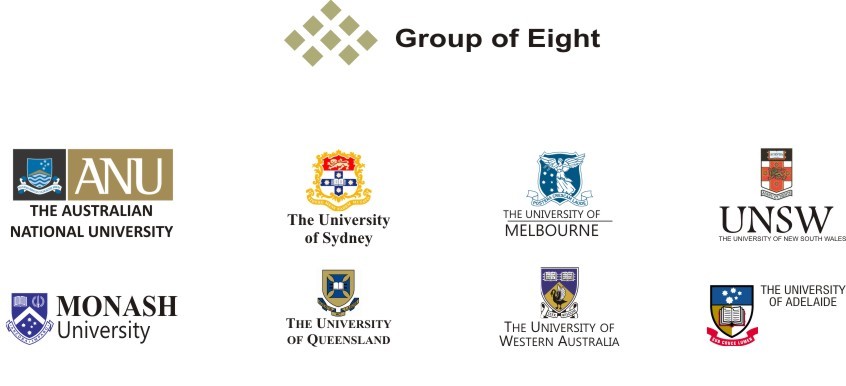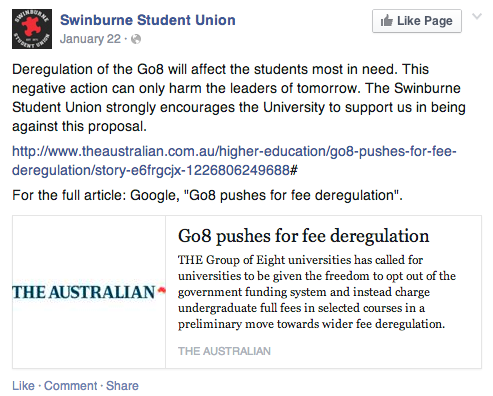What The Australian Group Of Eight Unis' Push For Fee Deregulation Means For You
The Group of Eight universities has called for universities to be given the freedom to opt out of the government funding system and instead charge undergraduate full fees in selected courses in a preliminary move towards wider fee deregulation.
The Group Of Eight (Go8) universities argued in favour of an opt-out system allowing universities to forgo government funding for particular courses in favour of charging full fees
In a submission to the Abbott government’s review of the demand driven funding system for public universities, led by former Liberal education minister David Kemp and economist Andrew Norton, the Go8 universities argued in favour of an opt-out system allowing universities to forego government funding for particular courses in favour of charging full fees.
unsw.edu.auTalking Points, a blog about Australian politics, headlined the issue, "If you go to one of these eight Universities, they just sold you out"
"Go8 adds that deregulation has not gone far enough and proposes that universities be allowed to charge whatever tuition fees they like in exchange for no longer claiming public subsidy for those courses"
The Go8 hails the uncapping of funded places as “an important step on the way to a more responsive, more market-driven and less regulated higher education system”. But it adds that deregulation has not gone far enough and proposes that universities be allowed to charge whatever tuition fees they like in exchange for no longer claiming public subsidy for those courses.
Under the current demand driven model, the Federal government funds Commonwealth supported places for all domestic undergraduate students accepted into a bachelor degree course at a public university, with the exception of medicine
Under the current demand driven model, the Federal government funds Commonwealth supported places for all domestic undergraduate students accepted into a bachelor degree course at a public university, with the exception of medicine.
unsw.edu.auWhat this means: "Adopting the Go8's proposal could drive up domestic fees at top-ranked institutions by 30-40% a year"
In place of this, the Go8 proposal would see full fees charged to students in subjects such as law, accounting, economics and commerce, in which the government currently subsidises 16 per cent of student fees.
unsw.edu.auSuch a move would amount to the effective privatisation of these courses, with the Go8 stating that the highest band of student fees could increase by 56 per cent from $9,792 a year to $15,250.
unsw.edu.auThe Go8’s proposed scheme would initially be limited to law, accountancy, administration, economics and commerce, but could later be extended to “other fields of high private return”.
Go8, "The approach is equitable because graduates of these fields generally enjoy high private returns, and there is no strong argument for them to be subsidised by general taxpayers"
"This approach would be a helpful first step towards progressively wider fee deregulation, which would minimise the potential unintended consequences."
The Go8 also said it was concerned at the growth of students entering university with lower school results and wanted universities to be transparent and held to account on their admission criteria through the compact agreements with government.
The Go8 also wants to see more funding redirected to cheaper sub-degree programmes at “non-university suppliers” and more research cash allocated by competition.
UNSW SRC (Student Representative Council) president Joel Wilson said the Go8 proposal is "disappointing"
Joel Wilson said the Go8 proposal will adversely affect students from lower socioeconomic, regional, and rural backgrounds.
unsw.edu.au"We'll get less graduates in remote areas, when in fact what rural Australia needs is more graduates and a high skilled workforce"
“This decreased access to university means that we’ll get less graduates in remote areas, when in fact what rural Australia needs is more graduates and a high skilled workforce,” Wilson said.
unsw.edu.auAustralian undergraduate fees are currently set by the government at variable rates according to complex criteria involving the earnings premium associated with each course and its national importance
Australian undergraduate fees are currently set by the government at variable rates according to complex criteria involving the earnings premium associated with each course and its national importance.
The Swinburne Student Union "strongly encourages the University to support us in being against this proposal"
While a forum user expressed concerns for heavy student debts over a long period of time
Comment from a forum user in relation to Go8's proposal for fee deregulation.
Image via Boredofstudies.orgThe Council of Australian Law Deans (CALD) also made a submission to the review, arguing that the government contribution for law students is already too low
"CALD is of the view that there should be a balance between the government and student contributions to the funding of undergraduate law education," it reads.
"Under the current funding arrangement our view is that the government contribution is too low and the student contribution is too high and that there is a clear imbalance between those two main sources of funding."









